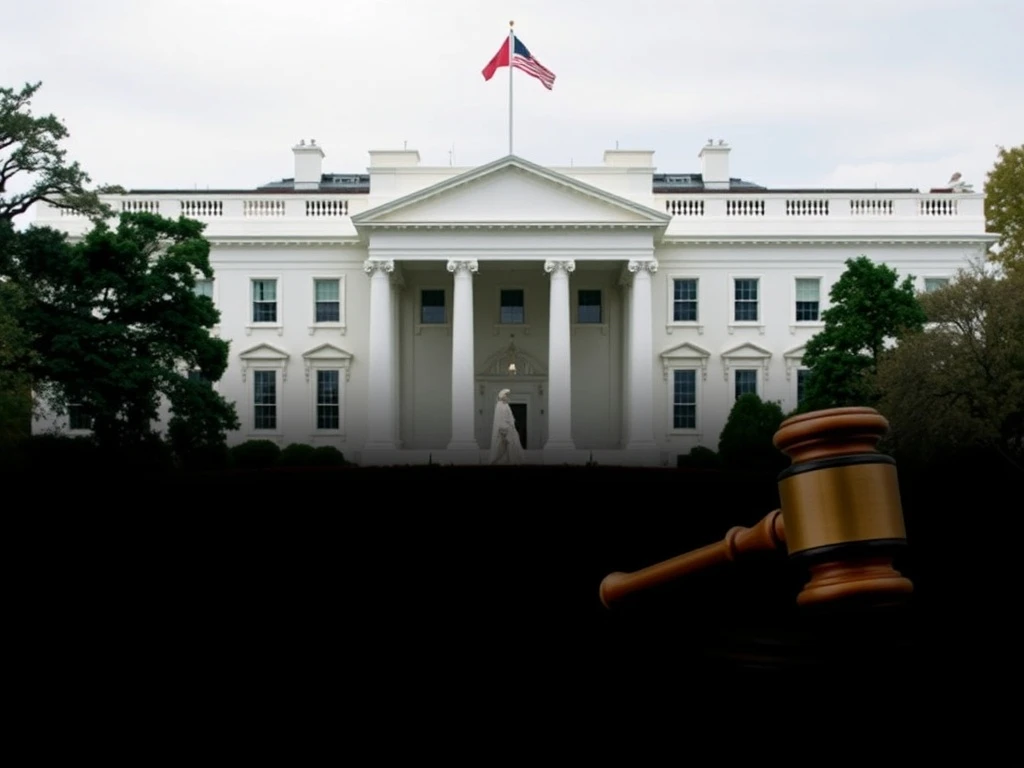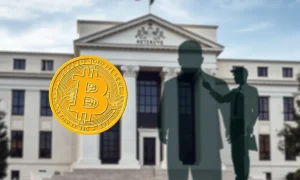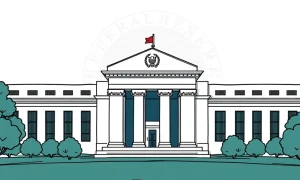The role of the Federal Reserve Chair holds immense weight in the global economy. This individual guides monetary policy, influencing everything from interest rates to employment levels. Now, reports indicate the White House is broadening its search for the next leader of this crucial institution. This expanded search signals a meticulous approach to the upcoming Fed Chair succession, potentially impacting economic stability and market confidence for years to come. Business leaders and entrepreneurs closely monitor these developments. They understand that leadership at the Federal Reserve directly shapes the financial landscape for their ventures. The decisions made by the Fed ripple through every sector, affecting investment, borrowing costs, and consumer spending.
Fed Chair Succession: White House Widens Net for Top Economic Post
The White House has reportedly expanded its pool of candidates for the next Federal Reserve Chair. This move suggests a thorough evaluation process for one of the most powerful economic positions globally. President Biden faces a critical decision. He must select a leader capable of navigating complex economic challenges. The current term of Fed Chair Jerome Powell concludes early next year. Consequently, the administration is now considering a wider range of potential successors. This expansion reflects a desire for a comprehensive review of available talent. It also highlights the strategic importance placed on this appointment. The White House seeks a leader who can maintain the Fed’s independence. This independence is crucial for effective monetary policy.
Observers note that widening the search allows for a deeper dive into diverse economic philosophies. The administration aims to find a candidate who aligns with its broader economic agenda. This includes addressing inflation, promoting full employment, and ensuring financial stability. The process involves extensive vetting. It considers candidates’ past performance, economic views, and leadership styles. Ultimately, the chosen individual will steer the nation’s monetary policy. This directly impacts businesses, consumers, and investors nationwide. The implications of this Fed Chair succession are far-reaching. The selection process considers both academic credentials and practical experience in economic management. This ensures a well-rounded leader.
The White House understands the gravity of this choice. The Fed Chair’s influence extends beyond domestic borders. Their statements and actions affect global markets and international economic relations. Therefore, the search committee meticulously evaluates each candidate’s capacity for global leadership. They also assess their ability to foster strong relationships with other central bank governors. This global perspective is increasingly important in an interconnected world. The ongoing search emphasizes a commitment to finding the most qualified individual for this demanding role. The integrity of the institution depends on this careful selection.
The Federal Reserve’s Pivotal Role in Economic Stability
The Federal Reserve serves as the central bank of the United States. Its primary mandates include maximizing employment and maintaining price stability. It achieves these goals through various monetary policy tools. These tools include setting the federal funds rate, conducting open market operations, and regulating banks. The Fed’s decisions directly influence borrowing costs, investment decisions, and economic growth. Therefore, the leadership of the Fed Chair is paramount. This individual guides the institution’s strategic direction. They also communicate its policies to the public and financial markets. Their guidance shapes the economic trajectory of the entire nation.
Historically, the Fed Chair has played a critical role during times of economic crisis. They provide stability and guidance. For instance, during the 2008 financial crisis and the COVID-19 pandemic, the Fed implemented aggressive measures. These actions helped to prevent deeper economic downturns. The effectiveness of these responses often hinges on the Chair’s ability to:
- Communicate clearly with markets.
- Build consensus among Fed governors.
- Act decisively under pressure.
The upcoming Fed Chair succession will place a new leader in this influential position. They will inherit a complex economic environment. This environment includes persistent inflation, global supply chain disruptions, and evolving labor market dynamics. The Chair must also balance short-term economic needs with long-term financial stability. Their decisions have lasting consequences.
The Federal Reserve also oversees the nation’s banking system. It ensures the stability and integrity of financial institutions. This regulatory function is vital for preventing systemic risks. The Fed Chair plays a key role in setting regulatory priorities. They also work to safeguard the financial system from potential shocks. This dual role—monetary policy and financial regulation—makes the Fed Chair one of the most impactful figures in government. Their oversight helps to protect consumers and businesses from financial instability. The selection for the next Fed Chair succession directly impacts this critical oversight function.
Potential Candidates Emerge in Fed Chair Succession Talks
While specific names are not publicly confirmed by the White House, speculation within financial circles is active. Potential candidates often include economists with significant experience. They might come from academia, government, or the private sector. Individuals with a strong track record in monetary policy or financial regulation are typically considered. The ideal candidate possesses a deep understanding of economic theory. They also demonstrate practical experience in policy implementation. Moreover, they must command respect from diverse stakeholders. This includes members of Congress, global central bankers, and financial market participants. Their ability to inspire confidence is paramount.
The selection process likely involves evaluating candidates on several key criteria. These include:
- Their stance on inflation and interest rates.
- Their approach to financial regulation.
- Their views on emerging economic challenges.
- Their ability to foster consensus within the Federal Open Market Committee (FOMC).
Each potential candidate brings a unique perspective to the role. The administration’s choice will reflect its priorities for the economy. This crucial decision on Fed Chair succession will shape the nation’s financial future. The White House considers candidates who demonstrate a commitment to data-driven decision-making. They also look for leaders with a proven ability to adapt to changing economic conditions. The breadth of experience among potential nominees highlights the rigorous nature of this search.
The role requires a nuanced understanding of both domestic and international economic forces. Candidates are likely assessed on their insights into global trade, geopolitical risks, and the interconnectedness of financial markets. Their capacity to represent the U.S. effectively on the global stage is also a factor. This includes participation in international forums and discussions with foreign central banks. The chosen individual must be a strong advocate for sound economic principles. They must also be able to articulate complex ideas clearly to a wide audience. The comprehensive review ensures the best possible outcome for this vital Fed Chair succession.
Economic Implications of Leadership Change at the Fed
A change in leadership at the Federal Reserve often creates market uncertainty. Investors and businesses closely watch for signals about future monetary policy. A new Fed Chair could signal a shift in the institution’s priorities. For example, a more hawkish Chair might prioritize fighting inflation. This could lead to higher interest rates. Conversely, a more dovish Chair might focus on maximizing employment. This could result in lower rates for longer. Such shifts can profoundly impact stock markets, bond yields, and currency valuations. Businesses, in particular, pay close attention to interest rate movements. These directly affect their borrowing costs and investment decisions. Small businesses especially rely on predictable credit conditions.
Furthermore, a new Chair’s communication style is critical. Clear and consistent communication helps to anchor market expectations. Any ambiguity can lead to volatility. The market prefers predictability from the central bank. Therefore, the onboarding process for the new Chair is vital. They must quickly establish credibility. They also need to articulate their policy framework effectively. The global economy also reacts to these changes. Major central banks around the world coordinate their policies to some extent. A change in US Fed leadership can ripple across international financial systems. The upcoming Fed Chair succession is a global event. It influences global investment flows and trade relationships.
Financial markets often react based on perceived policy leanings. For instance, a nominee seen as more inflation-averse might cause bond yields to rise. This reflects expectations of tighter monetary policy. Conversely, a nominee favoring growth could lead to a rally in equity markets. The dollar’s value can also fluctuate significantly. These market movements have real-world consequences for businesses. They impact export competitiveness and the cost of imports. Therefore, the selection process is not merely a political formality. It is an economic event with immediate and lasting consequences. The careful handling of this Fed Chair succession is paramount for market stability.
Navigating the Confirmation Process for Fed Chair Succession
Once the President nominates a candidate for Fed Chair, the Senate must confirm the appointment. This process can be lengthy and politically charged. The Senate Banking Committee first holds hearings. During these hearings, senators question the nominee on their economic views, policy stances, and qualifications. The nominee’s past statements and actions are scrutinized. They must demonstrate their independence from political influence. This independence is a cornerstone of central bank credibility. The committee then votes on whether to recommend the nomination to the full Senate. This step requires careful consideration by committee members.
A simple majority vote in the full Senate is required for confirmation. This can be challenging in a closely divided Senate. Political considerations often play a significant role. Senators may use the confirmation process to express broader concerns about economic policy or the administration. Delays in confirmation can create prolonged uncertainty for markets. Therefore, the White House aims to select a candidate who can garner bipartisan support. A smooth confirmation process is desirable. It helps to ensure continuity and stability at the Federal Reserve. The entire process underscores the importance of the Fed Chair succession. Public opinion can also influence the process.
The confirmation hearings provide a public forum for discussing the nation’s economic challenges. Nominees often outline their approach to managing inflation, employment, and financial stability. These discussions offer valuable insights into the future direction of monetary policy. They also allow the public to understand the immense responsibilities of the Fed Chair. The transparency of this process is crucial for maintaining public trust in the Federal Reserve. A well-vetted and confirmed Chair strengthens the institution’s legitimacy. This thorough vetting process is a key component of the Fed Chair succession. It ensures the chosen leader is ready for the immense responsibilities.
The Future of Monetary Policy Under New Leadership
The next Fed Chair will inherit a complex economic landscape. Persistent inflation remains a significant concern. Global geopolitical tensions continue to influence supply chains and energy prices. Furthermore, the long-term impacts of the pandemic are still unfolding. The new leader must balance the need to control inflation with the goal of sustaining economic growth. They will also face pressure to address emerging issues. These include climate change risks to the financial system and the rise of digital currencies. The ability to adapt monetary policy to these new challenges will be crucial. The new Chair must also be forward-thinking.
Different economic philosophies could lead to varying policy responses. For example, some economists advocate for a more proactive approach to inflation. Others prioritize a more accommodative stance to support employment. The chosen Chair’s philosophy will significantly influence the Fed’s future direction. Moreover, the Chair must effectively manage the Federal Open Market Committee (FOMC). This committee sets the nation’s interest rates. Building consensus among the diverse views within the FOMC is essential for effective policy implementation. The outcome of the Fed Chair succession will define the future trajectory of US monetary policy. It will also influence global economic trends.
The new Chair will also face the challenge of communicating complex monetary policy decisions to a broad audience. This includes financial markets, businesses, and the general public. Clear communication is vital for managing expectations and reducing market volatility. They must also maintain the Fed’s independence from political pressures. This independence is fundamental to the central bank’s credibility and effectiveness. The ability to navigate these challenges will determine the success of the next Fed Chair. The decisions made during this period will have lasting effects on the lives of ordinary Americans. The importance of the ongoing Fed Chair succession cannot be overstated.
The White House’s expanded search for the next Federal Reserve Chair highlights the profound importance of this appointment. This decision will not only shape domestic economic policy but also influence global financial markets. As the administration carefully vets potential candidates, the world watches closely. The chosen leader will face the monumental task of guiding the US economy through evolving challenges. Their leadership will impact inflation, employment, and the overall stability of the financial system for years to come. This crucial Fed Chair succession represents a pivotal moment for the nation’s economic future. The comprehensive nature of the search ensures a well-considered choice for this vital role.
Frequently Asked Questions (FAQs) about Fed Chair Succession
Q1: What is the Federal Reserve Chair’s primary role?
A1: The Federal Reserve Chair serves as the head of the United States central bank. Their primary responsibilities include guiding monetary policy to promote maximum employment and price stability (low inflation). They also oversee the nation’s banking system and ensure financial stability. This makes the Fed Chair succession a critical decision for the economy.
Q2: Why is the White House expanding its search for the next Fed Chair?
A2: The White House is expanding its search to conduct a comprehensive review of potential candidates. This ensures they select the most qualified individual to lead the Federal Reserve. It allows for a broader evaluation of diverse economic perspectives and leadership styles. The administration aims to find a leader who can effectively address current and future economic challenges.
Q3: How does a change in Fed Chair impact the economy?
A3: A change in Fed Chair can significantly impact the economy by signaling potential shifts in monetary policy. For instance, a new Chair might alter interest rate strategies, affecting borrowing costs for businesses and consumers. This can influence inflation, employment, and overall economic growth. Financial markets often react to these leadership changes, creating volatility.
Q4: What is the process for confirming a new Fed Chair?
A4: After the President nominates a candidate, the Senate Banking Committee holds confirmation hearings. Senators question the nominee on their qualifications and economic views. If approved by the committee, the nomination then proceeds to a vote by the full Senate. A simple majority vote is required for confirmation. This process ensures thorough vetting for the Fed Chair succession.
Q5: What challenges will the next Fed Chair likely face?
A5: The next Fed Chair will likely face several significant challenges. These include managing persistent inflation, navigating global economic uncertainties, and addressing evolving labor market dynamics. They will also need to consider new issues like climate change risks to the financial system and the impact of digital currencies. Balancing economic growth with price stability will remain a core challenge.
























